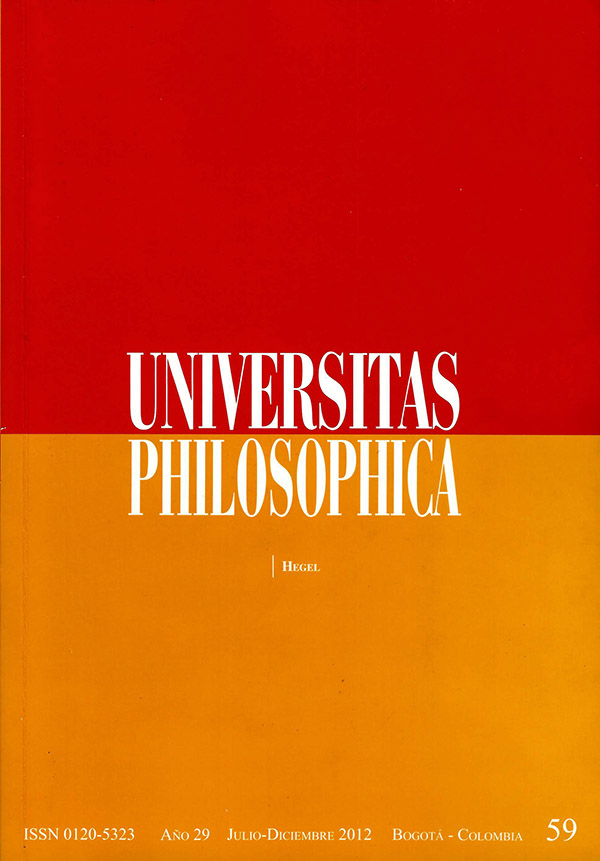Abstract
This article is the second part of the analysis begun in: The Aesthetic Contemplation as De-Individualization of the Subject in Schopenhauer (Cfr. Universitas Philosophica, 58, Año 29, enero-junio 2012: 217-249). Now, we will examine the paradigmatic figure of asceticism clearly showing the aporetic movement of freedom in the phenomenon that is to reach the radical contradiction of the will itself in an embodied particular individual. However, this attempt is still a limited effort to confront the inescapable fact that all life is essentially suffering, because the search for a possible answer to the malaise of the world remains anchored to the attempt to make the world something completely mine. Through asceticism, Schopenhauer decisively renews selfishness; either to affirm it or even get rid of it. This claim is revealed to us as an aporia, one Schopenhauer could not escape.
This journal is registered under a Creative Commons Attribution 4.0 International Public License. Thus, this work may be reproduced, distributed, and publicly shared in digital format, as long as the names of the authors and Pontificia Universidad Javeriana are acknowledged. Others are allowed to quote, adapt, transform, auto-archive, republish, and create based on this material, for any purpose (even commercial ones), provided the authorship is duly acknowledged, a link to the original work is provided, and it is specified if changes have been made. Pontificia Universidad Javeriana does not hold the rights of published works and the authors are solely responsible for the contents of their works; they keep the moral, intellectual, privacy, and publicity rights.
Approving the intervention of the work (review, copy-editing, translation, layout) and the following outreach, are granted through an use license and not through an assignment of rights. This means the journal and Pontificia Universidad Javeriana cannot be held responsible for any ethical malpractice by the authors. As a consequence of the protection granted by the use license, the journal is not required to publish recantations or modify information already published, unless the errata stems from the editorial management process. Publishing contents in this journal does not generate royalties for contributors.


